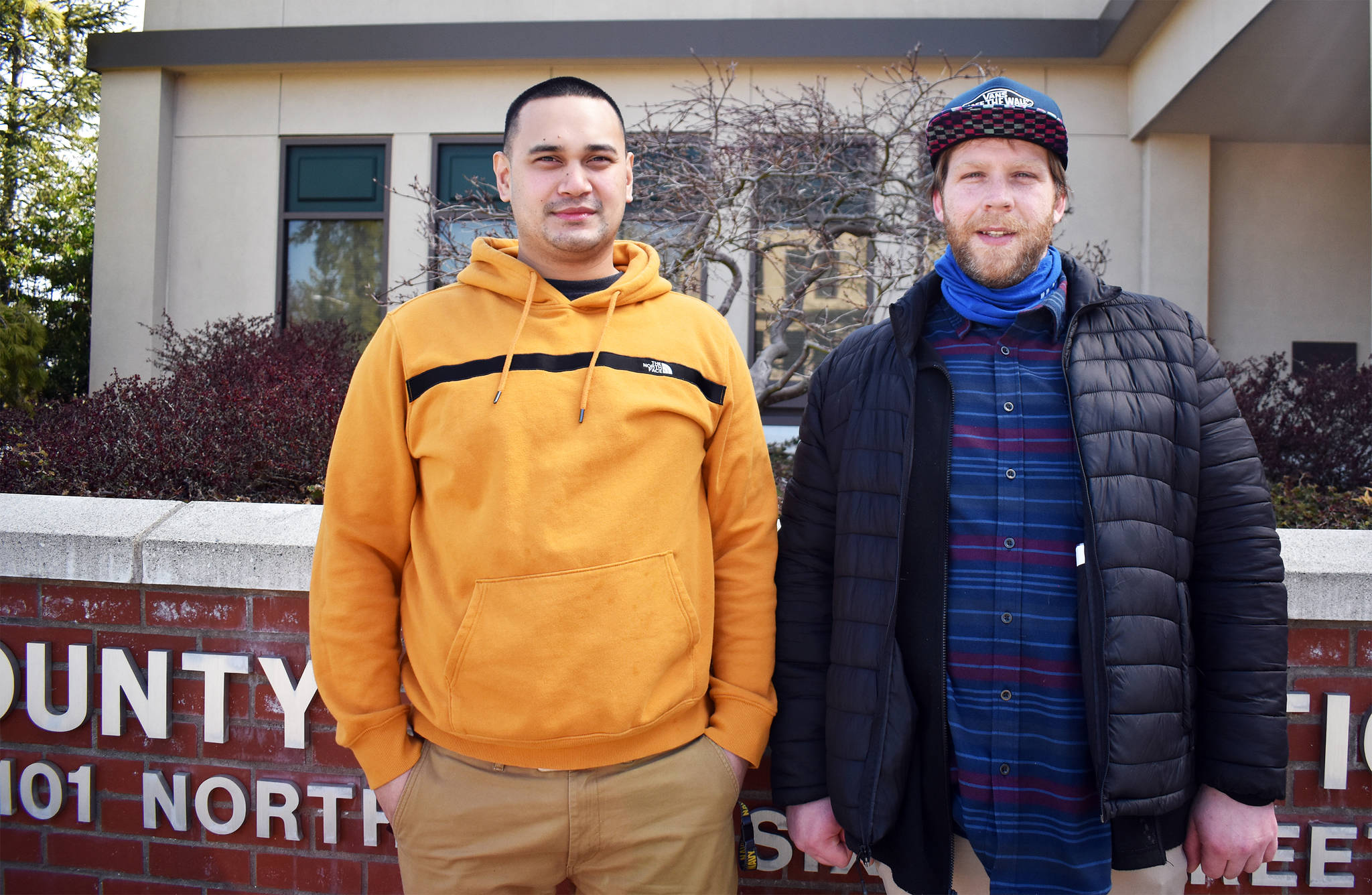When Island County Superior Court Judge Christon Skinner asked Andy Mendoza one last time in the courtroom if he was clean and sober, Mendoza responded with what had become known as his catchphrase: “All day, every day, your honor.”
Mendoza, 32, and fellow graduate Brandon Ezell, 33, both graduated from Island County Superior Court’s adult Drug Court on April 8.
The county’s Drug Court program helps people with drug charges break free from addiction through an intense, closely monitored treatment program. Participants’ charges can be dropped if they satisfy the requirements and graduate.
The two men have formed a bond having started the program about the same time about a year and a half ago. Multiple people spoke about their relationship during the graduation ceremony Thursday morning.
Mendoza and Ezell are the second and third people to graduate from the program this year, according to Drug Court Coordinator Carolyn Pence. Seventy-nine people have now graduated from the program since it began in 2006, she said.
Retired Judges Vickie Churchill and Alan Hancock came to witness the graduates’ accomplishments.
“To me, you’re heroes because you’ve overcome the biggest obstacles,” Churchill said.
Mendoza said drug court gave him the tools and confidence to turn his life around.
“I lost a career,” Mendoza said of his life before recovery.
He used to be a fisherman.
“I threw it all away because of meth,” he said.
Now, the Oak Harbor man said he is feeling much healthier, has reunited with his mother and is getting ready to head out on a fishing boat next month.
Multiple people said witnessing Mendoza’s sunny disposition and consistent answer to that one important question were some of the highlights of their workday.
Fellow graduate Ezell was usually the quiet one, and court staff noted how much he overcame during his time in the program.
His daughter was born while he was in jail, and the first time he held her was inside the courthouse at the end of a dependency hearing. He has since been reunited with his daughter and other family members.
Ezell also completed his GED in one month, found a job and moved into his own apartment.
“It’s been a great thing to be a part of your recovery,” Hancock said to Ezell.
A third man who started the program with Ezell and Mendoza was not there Thursday morning because his charges were dismissed after the state Supreme Court decided that the state’s felony drug possession law was unconstitutional and void in the case State v. Shannon Blake earlier this year.
State lawmakers have already introduced a bill that would fix it, but felony drug possession is currently not a crime in Washington as a result of the ruling.
Ken Delano, adult drug court case manager, said the man also had a family obligation that day. Delano said the Blake decision had an immediate local impact. He said he was shocked when he heard the news and was concerned for the participants. Four people had their charges dropped and thus became ineligible for Drug Court.
“Thankfully, the four that we did lose were on a good path. They had already made up their minds” about getting sober, he said.
Delano said they also lost some referrals because their charges had been dropped.
“Before that, we had three potential referrals sitting out there, and then that unfortunately dismissed those cases, so we weren’t able to work with those individuals,” Delano said.
He added that the number of people coming to the program had decreased when the pandemic began.
“After COVID, things started to drop off,” he said. “But you can’t say that people aren’t using, as we know substance abuse has gone up since COVID,” he explained.
Pandemic restrictions limited the court system’s schedule, but both Delano and Pence agreed that it has learned to adapt.
Although the number of participants has fallen from what it was before COVID, more people have begun expressing interest in it.
Pence said that drug court was able to continue throughout the pandemic because it had already invested in video capabilities. She said she is sure there are more people interested in the program.
“Our numbers are going up already,” Pence said.



